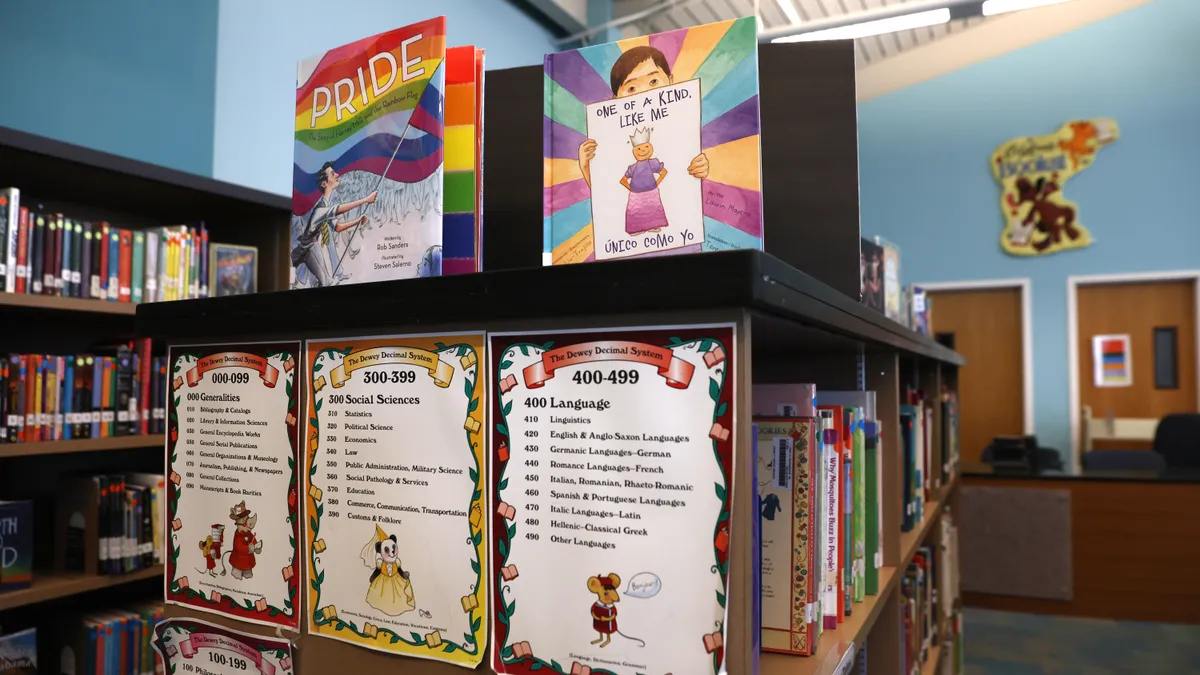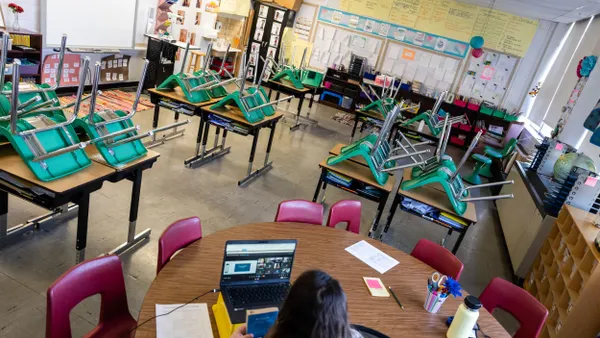Dive Brief:
-
Book bans continued to rise in K-12 in the 2022-23 school year, with 3,362 books banned between July 1, 2022, and June 31, 2023. This marks a 33% jump from the 2,532 books banned the prior school year, according to a report released Thursday by PEN America, a free expression advocacy nonprofit.
-
Over 40% of all book bans took place in Florida school districts. Texas, Missouri, Utah and Pennsylvania rounded out the top five states with the most bans.
-
State laws, combined with pressure from citizens and advocacy groups, "have created difficult dilemmas" for school districts, according to the report. A majority of all book bans were recorded in districts with a nearby chapter or local affiliate of a national group advocating for them.
Dive Insight:
The topics of books subject to bans also expanded in the 2022-23 school year, from race and LGBTQ-related materials to physical abuse, health and well-being, and grief and death.
However, a disproportionate number of contested books were still about the experiences of marginalized people. Thirty percent of all instances of book bans included characters of color and themes of race and racism, and another 30% represented LGBTQ+ identities.
The most frequently banned titles were largely young adult novels featuring female, queer and/or nonbinary protagonists. "The Bluest Eye" by Toni Morrison, long hailed as a classic of American and Black literature, is among the books most commonly banned by districts.
The most recent school year also saw a 400% increase in books banned from both classrooms and libraries, from 333 such cases in 2021-22 to 1,263 cases in 2022-23. PEN America attributes that increase to multiple factors, including districts responding to legislation, revising their policies to prohibit certain content, and overriding standard book challenging processes.
“The toll of the book banning movement is getting worse," said Suzanne Nossel, chief executive officer of PEN America, in a statement. Nossel added that those advocating for books bans "are turning our schools into battlegrounds, compounding post-pandemic learning loss, driving teachers out of the classroom, and denying the joy of reading to our kids."
However, national advocacy groups like Moms For Liberty, Citizens Defending Freedom and Parents' Rights in Education say that some library and classroom books expose children to topics that are either inappropriate for their age or should fall within parents' rights and responsibilities to broach.
In addition to those groups, Florida has long been on the frontlines of the curriculum regulation movement, which educators and advocacy groups like PEN America say targets content related to race and LGBTQ+ issues.
In a public debacle, the state rejected The College Board's AP African American Studies course earlier this year. It followed that decision by asking the organization to revise its longstanding AP Psychology course, which instructs students “to describe how sex and gender influence socialization and other aspects of development.”
Florida’s policies have also gained the attention of the U.S. Department of Education, which has denounced its "Parental Rights in Education" law, referred to by opponents as “Don’t Say Gay.”
However, when prompted by increasing complaints and calls for help from school communities on the issue of race in school programs, the department said in August that how states and local policies regulate curriculum and programs is mostly out of its hands.
"Florida isn’t an anomaly — it's providing a playbook for other states to follow suit," said Kasey Meehan, PEN America’s Freedom to Read program director and lead author of the report, in a statement.
Following Florida's decision to reject AP African American Studies, for example, other states said they would also review the course.












